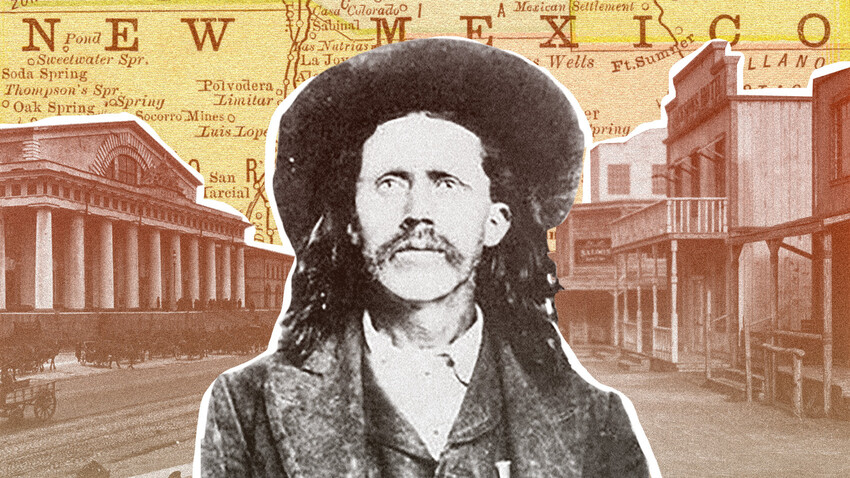
This story started as a typical Western movie: A small town on the U.S.-Mexican border, peaceful residents terrorized by a ruthless gang and an odd character that looked out of place in this typically Western setting. Yet, by no means was he the hero in this story.
In 1873, a cowboy named Newman Haynes ‘Old Man’ Clanton arrived in Arizona territory, along with his sons. Settling in the town of Tombstone, they met other fellow cowboys and set up a ranch. Initially involved in freighting and ranching, the ‘Cowboys’ – as the Clanton Gang became known – soon made outlaw pursuits their chief occupation.
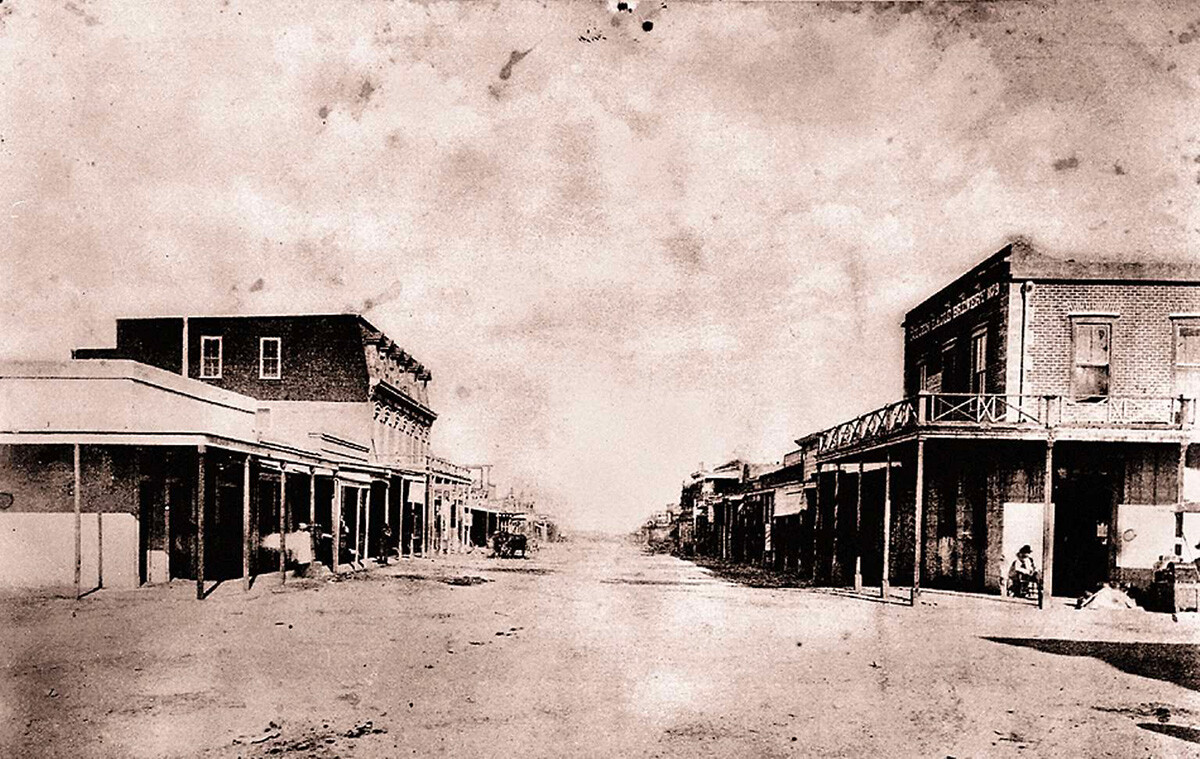
Tombstone, AZ - Allen Street, 1882.
Public domainOne of the gang’s most ruthless outlaws was William Brocius, widely known as Curly Bill Brocius. Within the gang, Curly Bill had a reputation of the most deadly gun shooter. “He was able to hit running jackrabbits, shoot out candle flames without breaking the candles or lantern holders and shoot quarters from between the fingers of volunteers,” wrote author Billy Breakenridge about Curly Bill.
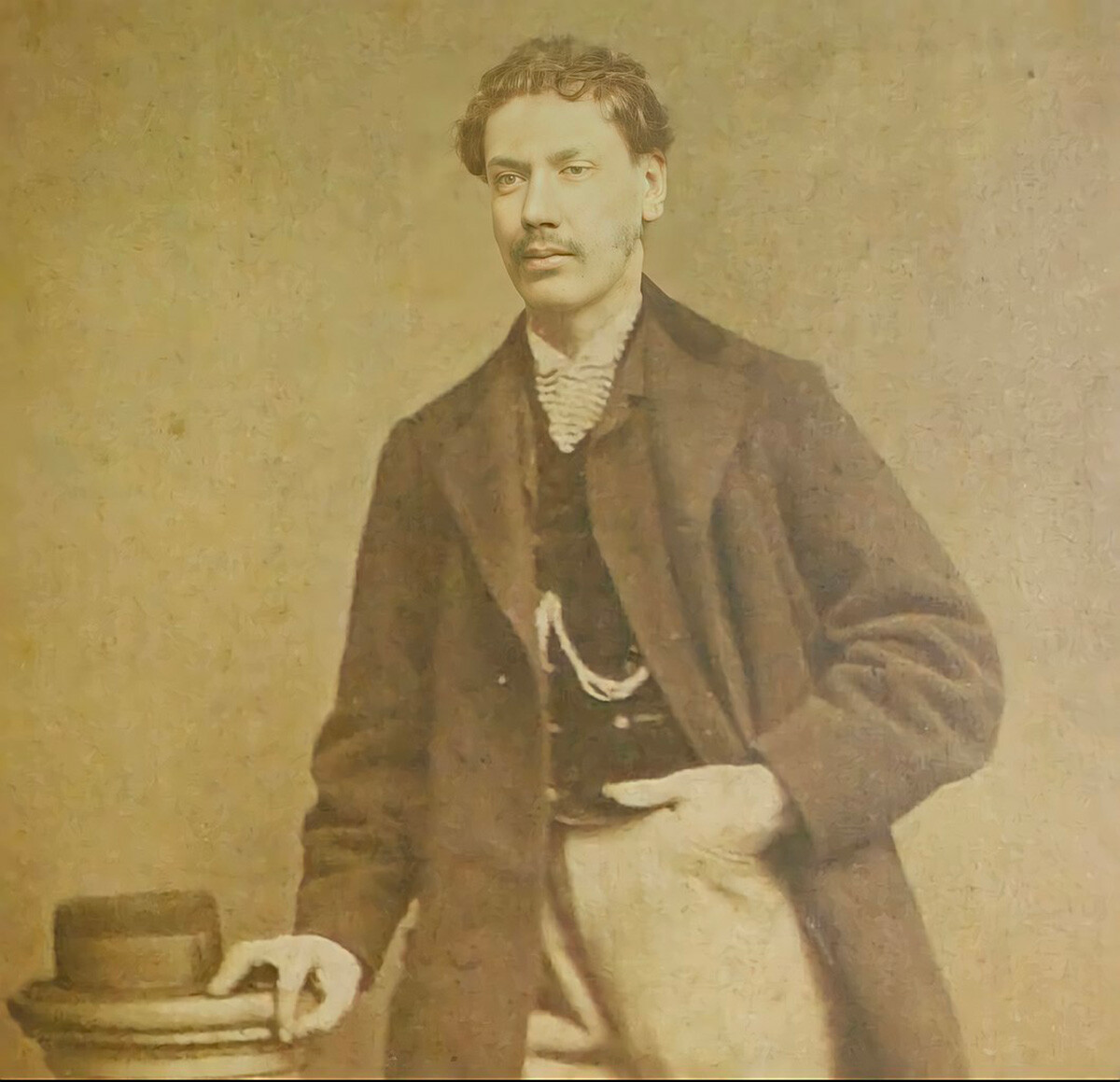
Curly Bill Brocius.
Public domainCoupled with a bad temper, his talent for shooting meant trouble for people who were misfortunate enough to cross paths with him. For laughs, Curly Bill used gunfire to make a preacher dance during a sermon and forced some Mexicans to undress and dance naked during a community dance on one occasion. Most importantly, Curly Bill killed people and managed to get away with it.
It would be an understatement to say that Curly Bill inflicted terror on those who he happened to cross paths with. Yet, if there was a person who could placate his bad temper and keep it in check, it was a fellow outlaw who was at odds with the Western setting of the American frontier.
A fellow outlaw who came by the name William Tattenbaum earned his right to associate with the gang. Yet, he did so not by his masterful shooting skills or by a mean character. Instead, the man earned his reputation as an immaculate dandy.
Tattenbaum is said to have had curly blonde hair and a neat mustache. He always dressed up with extreme elegance and concern for details.
On top of that, Tattenbaum maintained a highly unusual story of his origin. The dandy claimed he was a Russian nobility and a Hussar in the tsar’s cavalry. For this, the fellow outlaws dubbed him ‘Russian Bill’.
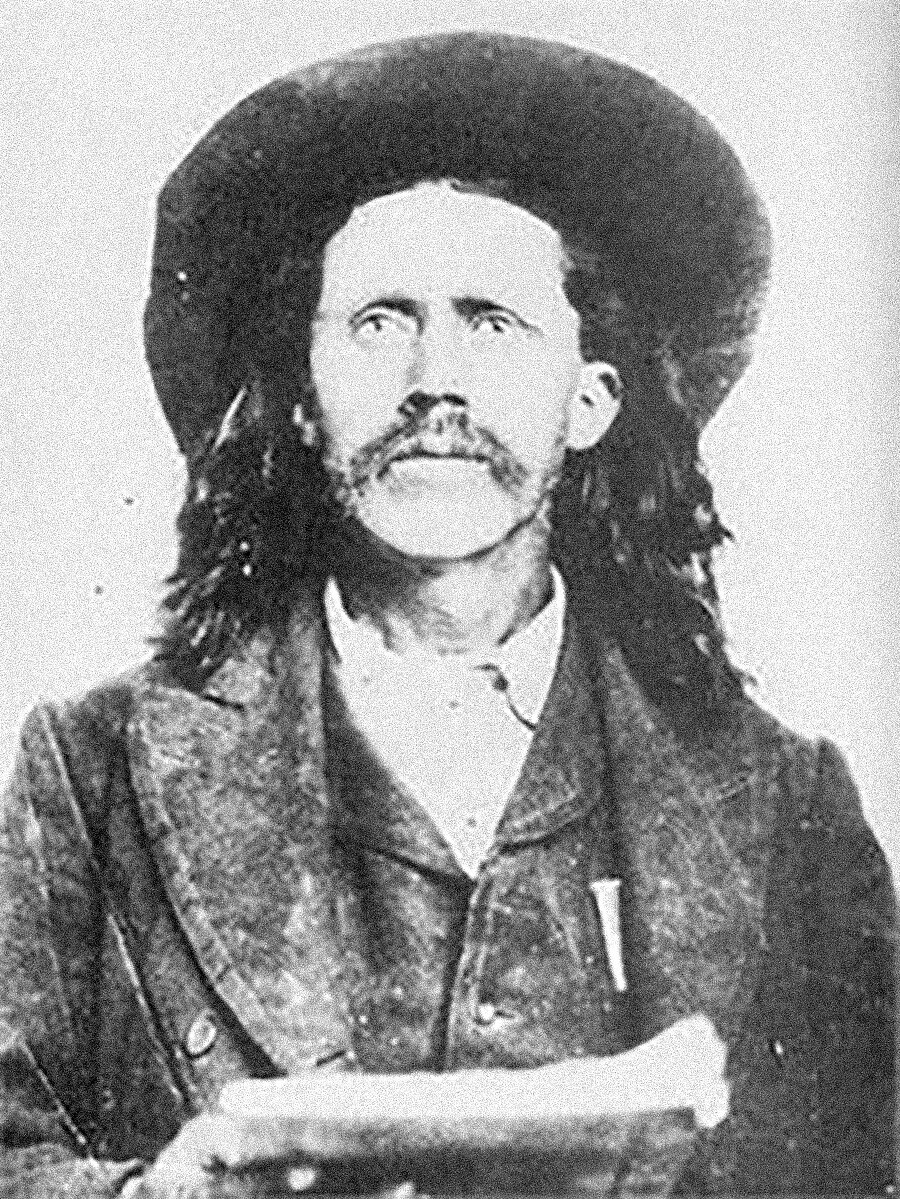
An illustration of Russian Bill. Little is known about the character of Russian Bill and his backstory.
Public domainLittle is known about the character of Russian Bill and his backstory. An article in the New York Times published on September 23, 1883, seems to be the only source of information about this peculiar personality.
“His looks would have attracted attention anywhere, but dressed in the fancy cowboy garb, he was particularly noticeable. His clearly cut features, long, drooping mustache and curly blonde hair, which fell in curls on his shoulders, made Russian Bill an object of special interest to strangers,” described the author of the New York Times article who claimed to have met Russian Bill.
With the rest of the gang, Russian Bill engaged in rustler’s business of stealing cattle in U.S. towns and taking them across the border to Mexico, where the outlaws would then sell them. Although Russian Bill claimed to have killed people, there are no written testimonies of his contemporaries confirming to have witnessed any other crimes committed by the amusing man, except cattle stealing.
He was reported to have other talents, nonetheless. “Russian Bill was a man of good education; bespoke four languages fluently and delighted whenever opportunity in discussing literature, science or art [presented itself]. Of his past, nothing was known, save that he was from Russia and, as it would have been resented as an insult by any of the rustlers to have asked questions about so delicate a subject, no one attempted to discover why a man of such mental attainments had joined a band of outlaws,” read the New York Times article.
The outlaw claimed to be an offspring of a noble Russian family. If this was true, speaking numerous languages should not be considered an unlikely skill, as Russian nobility traditionally received a decent education and spoke several languages, particularly French, from childhood.
However, his other claims appear impossible to verify. For example, Russian Bill is known to have claimed he served in tsar’s cavalry as a Hussar and fled the country, because he was going to face a court-martial for striking a superior officer. Although this claim can be neither refuted nor substantiated, the described incident seems like it could theoretically have happened, as the hussars were notorious for their short temper and impulsive actions.
Russian Bill found his end in the town of Shakespeare, New Mexico.
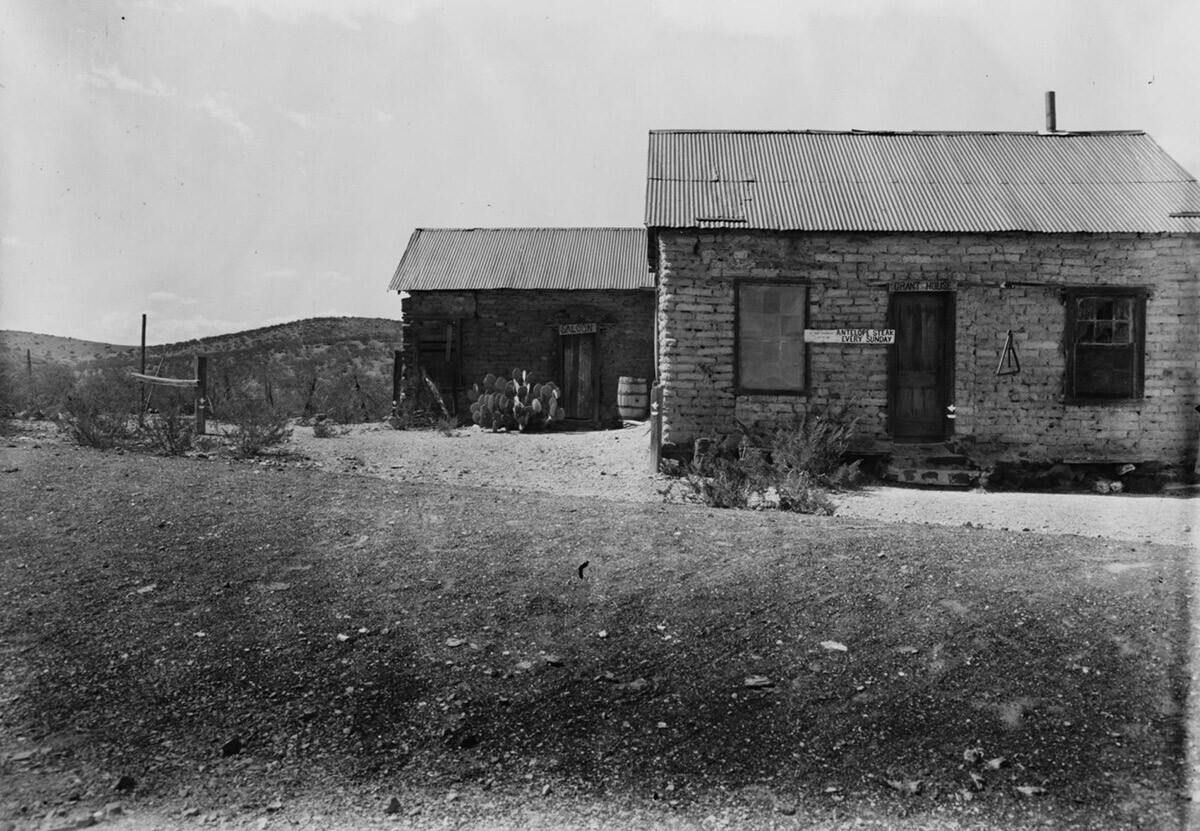
Buildings In Shakespeare, New Mexico.
Legion MediaBill befriended a fellow outlaw named Sandy King, a rustler and thief who had settled in Shakespeare, New Mexico, disturbing the peace of the small town and quickly earning a reputation as the town bully. Following in his friend’s footsteps, Russian Bill arrived in Shakespeare against his better judgment.
On November 9, 1881, after Sandy King was arrested and hauled off to jail for shooting a storekeeper’s index finger in the heat of an argument, Russian Bill did not waste any time trying to free his friend, but, instead, went on to steal horses he found in the town. Apparently lacking a knack for rustling, he was immediately caught red-handed and reunited with his friend behind bars.
A vigilance committee – private individuals who took enforcement of the laws in their hands – quickly tried Russian Bill and sentenced him to be hanged. His friend Sandy King was proclaimed “a damned nuisance” and sentenced to be hanged, as well.
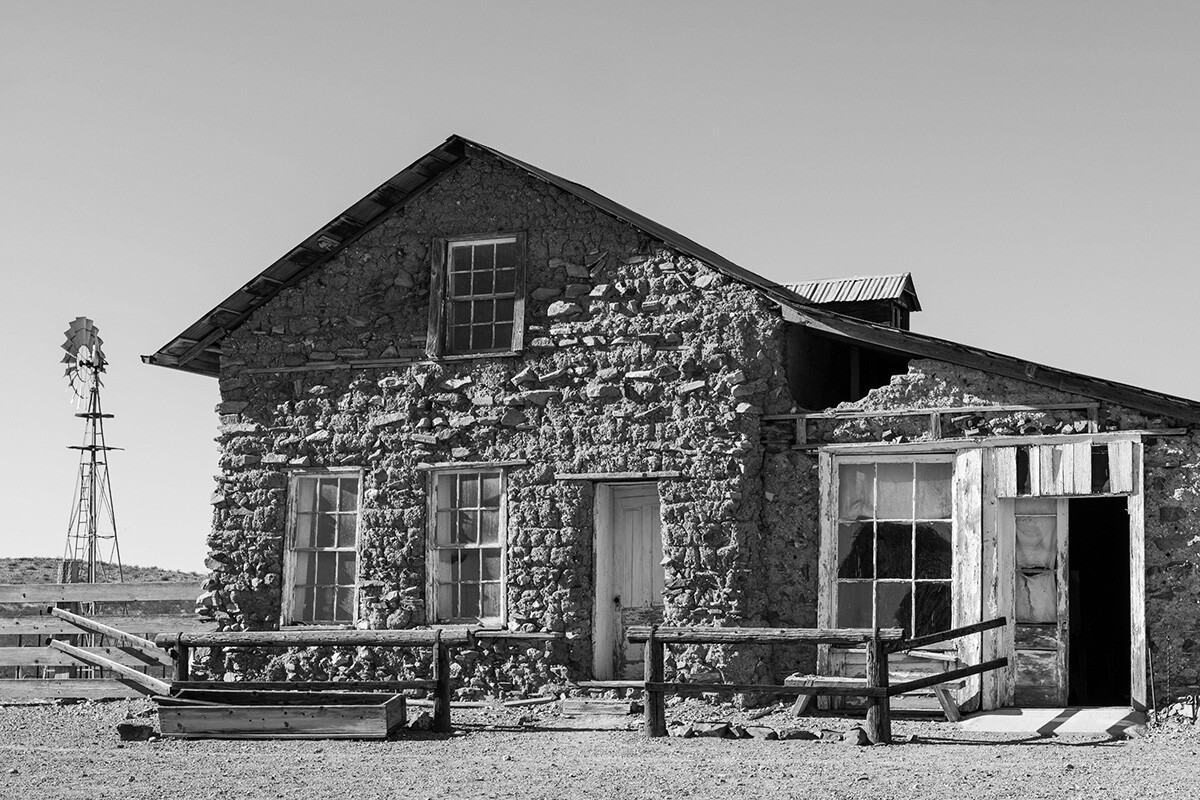
The Old Stratford Hotel On Avon Street In The Ghost Town Of Shakespeare, New Mexico.
Legion MediaThe lynchmen dragged the two outlaws to a makeshift courtroom set in the dining hall of the local Stratford Hotel, threw ropes over the ceiling rafters, placed nooses around their necks and pulled the men up until they were dead.
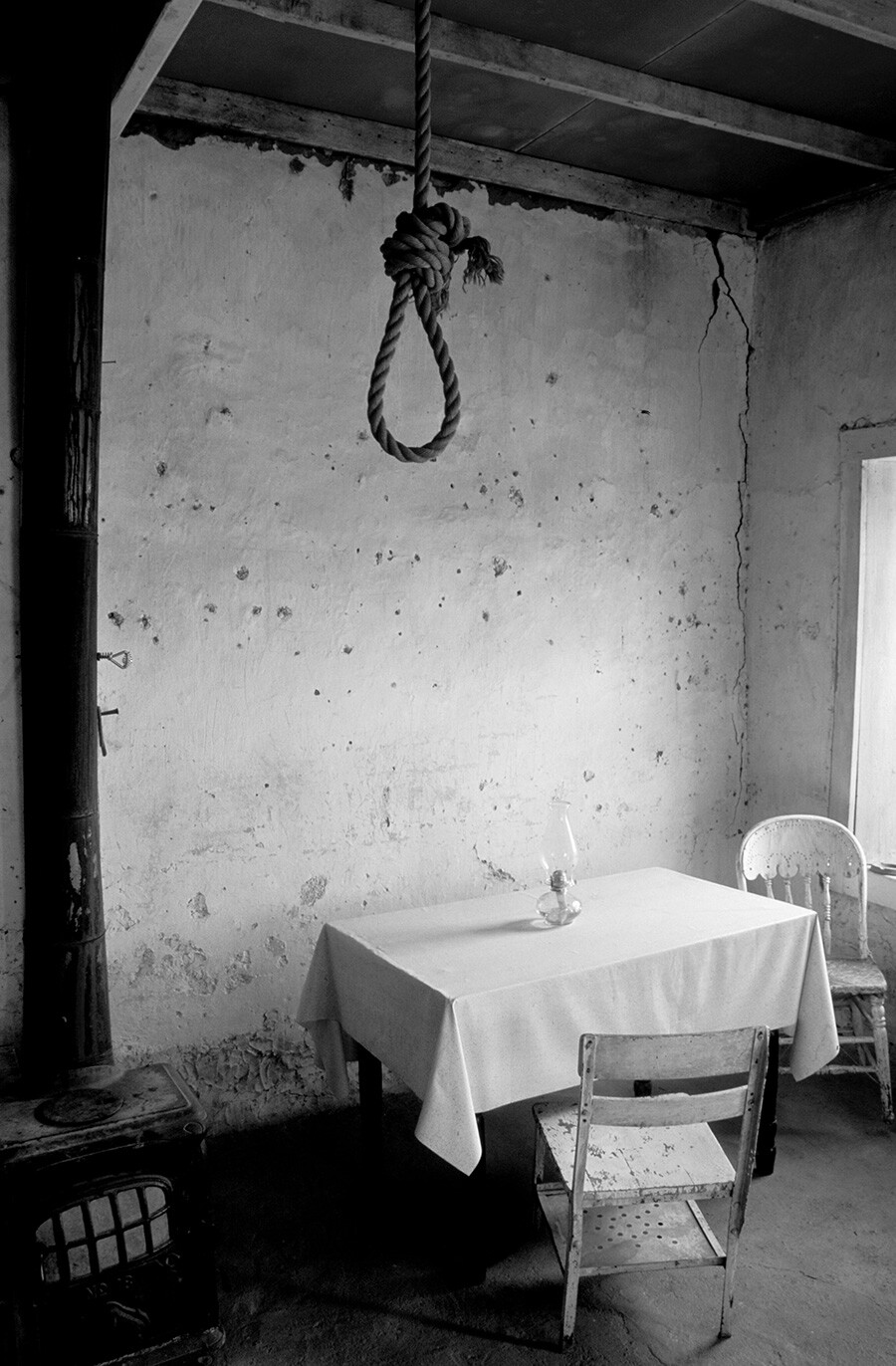
New Mexico, Shakespeare, Ghost Mining Town, Interior of an abandoned house.
Legion MediaThis is how the story of Russian Bill – an odd outlaw who claimed to have come to the Wild West all the way from faraway Russia – ends.
The author of the New York Times article adds a peculiar post scriptum:
“A short time ago, the Sheriff of Grant County, New Mexico, received a letter from the American Consul in St. Petersburg, saying that Countess Telfrin was very anxious to learn the whereabouts of her son, who had been banished for political reasons, but who possessed large estates. The letter enclosed a photograph of Russian Bill. Word was sent to the count that he had committed suicide in Shakespeare two years ago and the true facts were kept from the knowledge of his mother.”
It’s hard to say if this report is true, however. For one, the name Telfrin is not Russian in its origin. Moreover, the countess that goes by the name appears only in connection with the story of Russian Bill.
Dear readers,
Our website and social media accounts are under threat of being restricted or banned, due to the current circumstances. So, to keep up with our latest content, simply do the following:
If using any of Russia Beyond's content, partly or in full, always provide an active hyperlink to the original material.
Subscribe
to our newsletter!
Get the week's best stories straight to your inbox